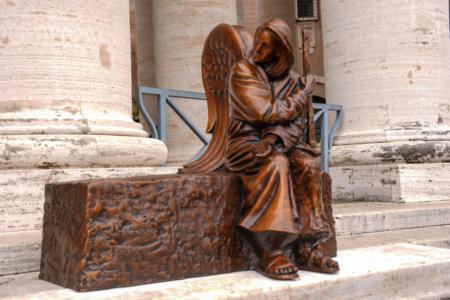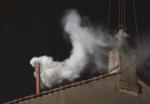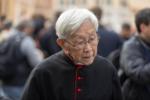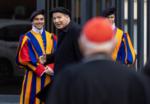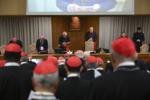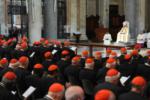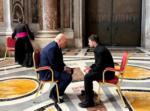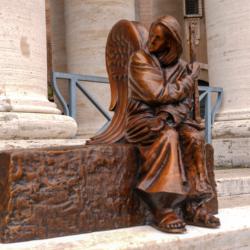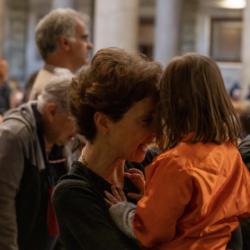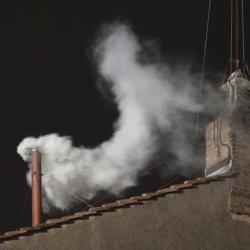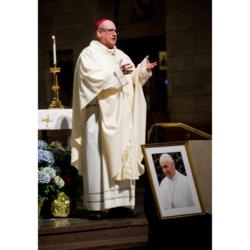‘Thou shall not kill’ is an essential part of a civilized existence
The following statement was issued by Archbishop O’Malley regarding the case of Terri Schiavo. The statement is based on remarks made by the archbishop during his homily for the service of Tenebrae at the Cathedral of the Holy Cross, March 23.
This Holy Week our nation is riveted by the Terri Schiavo case, a tragic story of a young woman with severe brain damage and the dramatic battle for her life.
In America, freedom is the strongest cultural value. We feel that, as individuals, each person should be able to make all the choices affecting his or her life as if we were not connected to each other or God. We feel diminished if we are sick or in any way dependent. The truth is we are all interdependent — we depend on each other. I take care of a little child and some day that little child or someone else will take care of me. The Holy Father’s heroic struggle to keep on shepherding the Church at a time in his life when he no longer enjoys the vibrant good health of his earlier years is to reaffirm for all of us the dignity of every life even in moments of sickness and struggle.
The teachings of the Church are often misunderstood. The Church talks about natural death. This means that we can allow someone to die with a terminal illness or fatal injury. That might mean removing life supports to allow a dying person to die. What we must never do is cause someone to die. If a person is dying you might remove a feeding tube to make them more comfortable. But if removing the nutrition and water causes their death, we should not do it.
It is sad that the principle of the sacredness of human life is being constantly devalued in our society. It began with abortion and now is opening the path to cloning for spare parts and euthanasia.
I am not judging the motivation of those who are embracing these positions. They are deceived by appearances, by shadows. In Christ we discover the light, the dignity and sacredness of human life. We also discover a new meaning for suffering and death. Without villainizing anyone for their opinions we must have the courage to walk in the light and try to convince people that “Thou shall not kill” is an essential part of a civilized existence.
In Jesus’ death we have the death of an innocent. Many thought they were doing society a favor. Jesus’ life and ministry was seen as inconvenient, threatening, costly. The enemies of His Gospel still want to debunk Jesus. The challenge of the followers of Jesus is to have both courage and compassion and to demonstrate that it is love and compassion that motivates us to reach out to defend the vulnerable and to say that every human being is important, irreplaceable, precious.
We must do all we can to help people overcome pain and to die a natural death, not keeping a dying person alive by all means nor taking steps that will kill them. A person’s worth does not depend on their good looks, their productivity or their performance. Being made in the image and likeness of God entitles us to the right to life. That principle needs to be safeguarded, the slippery slope puts everyone at risk. If the government can authorize starving a woman with brain damage today, tomorrow the victim can be the Alzheimer’s patient or the handicapped or the child born with some defect.
